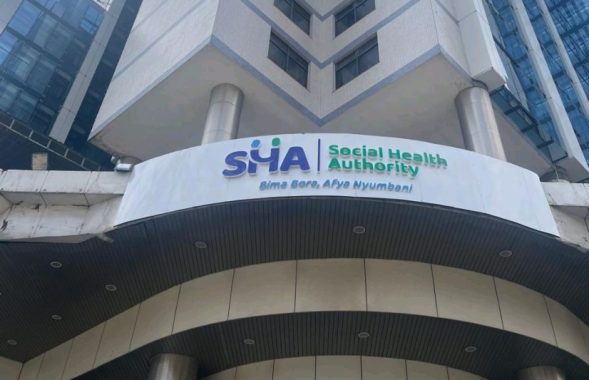Mumia East MP Peter Salasya has criticized the Social Health Authority (SHA), arguing that it has taken Kenya 15 years backward in healthcare provision. According to him, SHA is ineffective and will not work this year or even in 2027.
In a statement shared on his Instagram account on Monday, March 3, 2025, Salasya dismissed claims that SHA is an improvement over the National Health Insurance Fund (NHIF). His comments were in response to Homa Bay Governor Gladys Wanga, who, during a recent TV interview, insisted that the government should not revert to NHIF but should instead fix the gaps in SHA.
“SHA has taken us back 15 years to where we were, and it had existed for 56 years.SHA will not work out this year nor next year, or 2027….why is it that all contributors are not eligible to use SHA? Kuna kitu mahali inafichwa kuibia wakenya from national coffers and general public,” Salasya noted.
Salasya argued that SHA depends entirely on the national exchequer to fund healthcare services from Level 2 and Level 3 hospitals. He pointed out that government funds take a long time to be disbursed, making it difficult to run an effective health insurance system under SHA. He also expressed concerns about the referral system under SHA, noting that patients must first go through lower-level hospitals before being referred to higher facilities, which he sees as an unnecessary hurdle.
“SHA depends on ex chequer completely from level 2 and level 3 hospital and yet you know the ex chequer takes long to to be dispersed and u must get referal from this lower hospital upwards, even up to now we haven’t started implementing the 2024/2025 budget only three months to to it’s end,” he stated.
Furthermore, the MP questioned how SHA would fund chronic disease treatment when the Treasury does not release funds promptly. He compared this to NHIF, which was self-sustainable and funded several programs such as Edu Afya, Linda Mama, and chronic disease care. He also noted that NHIF worked with a consortium of insurance companies to provide coverage for chronic conditions, something he believes SHA has failed to do.
“SHA also says exchequer to fund chronic diseases how and treasury doesn’t disburse money immediately compared to nhif which was self sustainable without exchequer.NHIF Funded edu afya,linda mama, chronic diseases and they had a consortium of insurance companies and reinsurance of some chronic diseases,” Salasya added.

Salasya also questioned why all contributors are not eligible to use SHA, implying that there could be hidden financial mismanagement within the system.
Unpaid claims
His remarks come as the new healthcare system is facing criticism from various stakeholders, with concerns that it may not be as efficient as NHIF in providing accessible and reliable healthcare coverage for Kenyans.
The healthcare sector has been facing paralysis as private hospitals suspended services under SHA. The Rural & Urban Private Hospitals Association of Kenya (RUPHA) announced the indefinite suspension on February 20, 2025, effective February 24, affecting over 600 private and faith-based hospitals.

RUPHA cited financial constraints, revealing unpaid claims of Ksh30 billion and an unsustainable reimbursement model. Many hospitals have laid off staff, delayed salaries, faced medicine shortages, and defaulted on loans.
“The continued failure to resolve critical challenges in the SHA transition is directly endangering patient care and hospital sustainability. Hospitals have lost staff, defaulted on loans, and faced medicine shortages due to delayed payments,” RUPHA Chairman Brian Lishenga said.